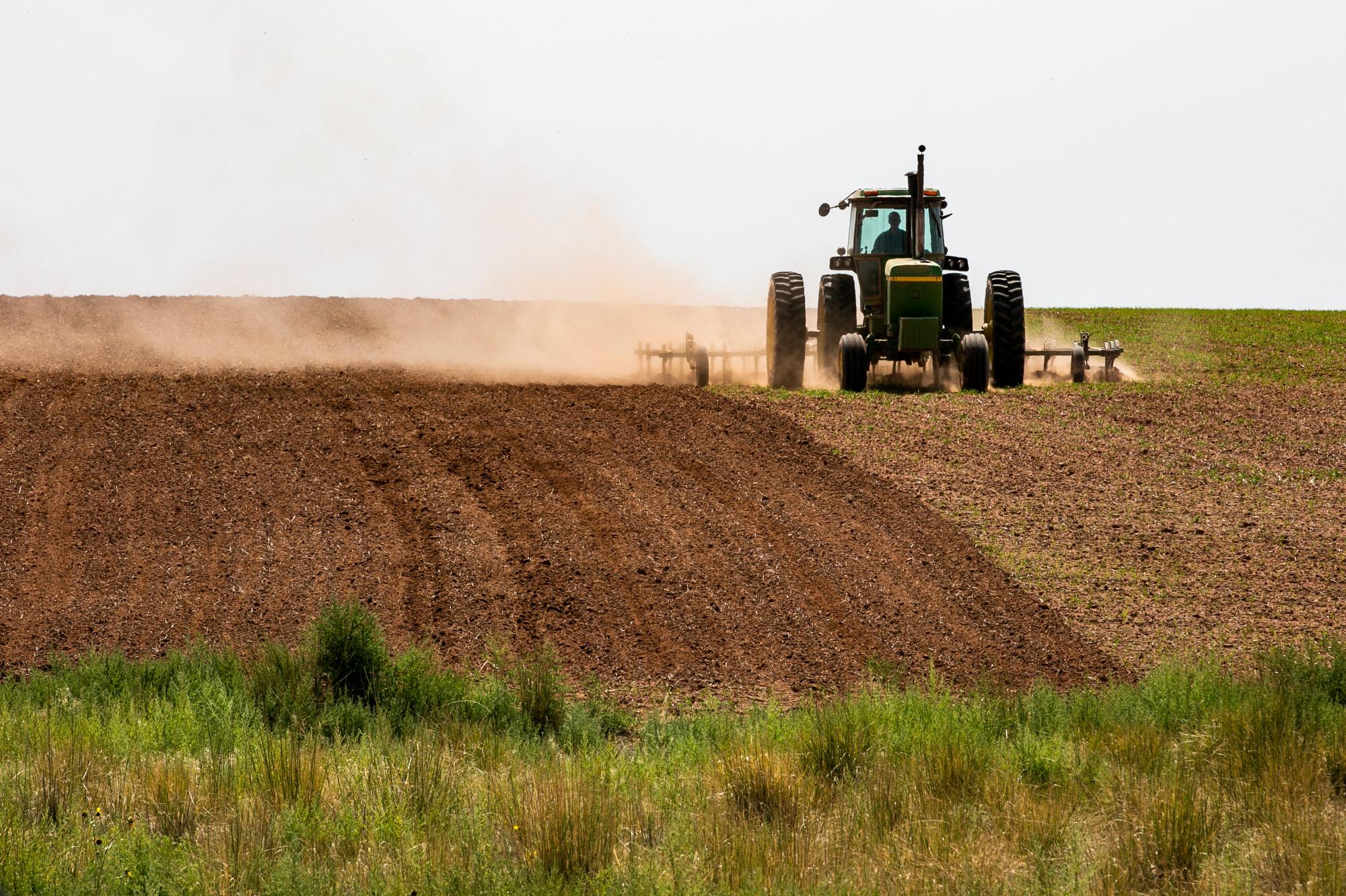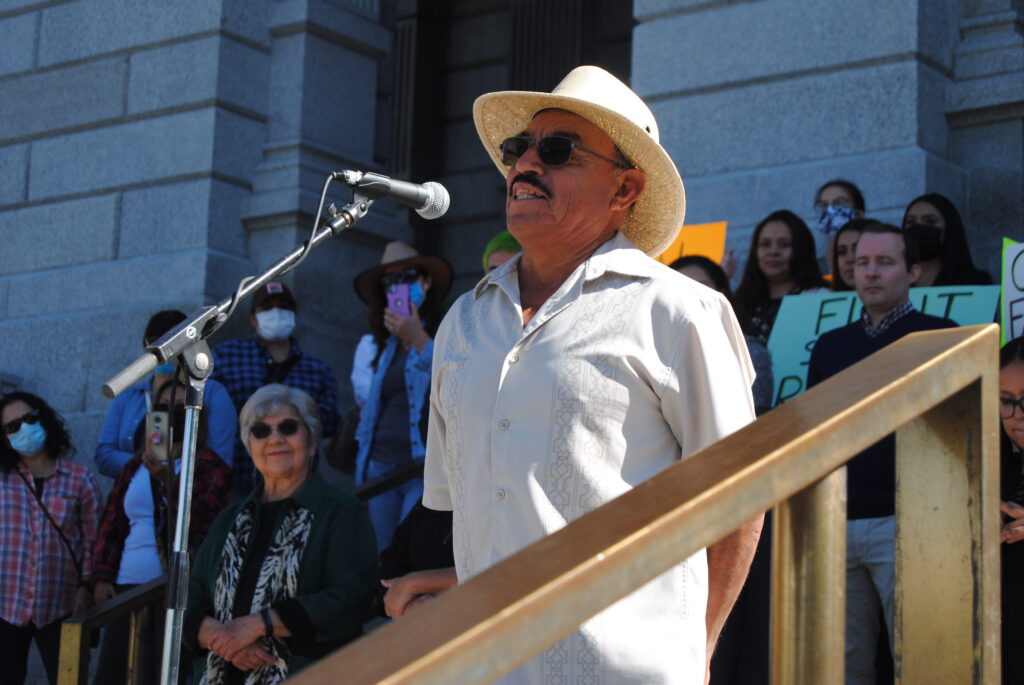
The Polis administration has released a draft of the state’s first overtime pay rules for Colorado farmworkers. Its proposal, published Thursday, establishes a phased process for rolling out overtime pay requirements over the next four years.
The new guidelines are part of a landmark labor rights bill lawmakers passed during the most recent legislative session. But they are already drawing pushback from workers, who say the proposal favors farmers and large corporations.
“We want [the state] to get [agriculture workers] what they need,” said Adolfo Hernandez, a Weld County farmworker.

If adopted, the rules would guarantee overtime pay for the state’s roughly 40,000 farmworkers for the first time ever.
As written, they require employers to pay one and a half times a workers’ regular rate if they work 60 hours or more in one week. It would take effect in November 2022 and has updates built-in to lower the number of hours required for 2024 and 2025.
The rules also outline multiple exemptions for many workers, including administrative employees, certain “in-residence” workers, IT workers, National Western Stock show staff and others. They are not final, and still need to go through a rulemaking process this fall.
Farmworkers and advocates for the Latino community gathered at the state Capitol on Tuesday to demand the Polis administration lower the new overtime requirements to 40 hours per week, which is the level for workers in other industries.
“That’s what we want,” said Polly Baca, a former Democratic state senator and daughter of a farmworker. “[We want] fair overtime like all the other workers and seasonal industries, like the tourist industry, like, oh my goodness, our ski industry up in those beautiful mountains, like all of the other seasonal industries that pay their workers overtime.”
Many speakers expressed disappointment at the draft rules, saying they fell short of the intent of SB21-087, the landmark labor rights legislation passed this year. The new law guarantees a minimum wage for farmworkers and allows them to join unions, on top of kickstarting the creation of new overtime rules.
Some said the rules, as written, perpetuate long standing, systemic inequalities in labor laws that especially hurt communities of color, who make up a large percentage of the agricultural workforce.
“The intent of (SB21-087) is to provide protection to farm workers,” said Mike Cortez, executive director of the Colorado Latino Leadership, Advocacy & Research Organization, a Denver-based nonprofit that advocated for the new overtime rules. “What we're looking at right now in this draft is more protection of their employers.”
Hernandez, the Weld County farmworker, grew emotional as he spoke about working 80-hour weeks without receiving overtime.
“I would like to see [workers] receive the salary that they deserve,” he said through a translator. “So they can pay their rent, they can pay their bills and so that they don’t have to resort to secondhand stores or food of lower quality because they can't afford anything better.”

Democratic State Senator Jessie Danielson, SB21-087’s main sponsor, said she felt the first draft of rules takes “way too long” to be implemented and offers too many exemptions to employers.
“Some of the changes that we need to see would eliminate the carve out for some farmers versus others,” she said. “I am confident in these next few weeks, the voice of the Colordans that we depend on so heavily to produce our agricultural products will be heard and the governor will do the right thing.”
In a statement, a spokesperson for Gov. Jared Polis said he was proud to see SB21-087 being implemented.
“Farmworkers are finally getting the rights that many workers in other sectors already have,” the spokeswoman said in an email. “This is a draft rule and still subject to change.”
Polis has not responded to workers’ requests for alterations to the rules.
Organizations representing Colorado farmers expressed optimism about the first draft of rules, saying they struck a balance between the needs of workers and employers.
“I think starting out at 60 hours is something that is more reasonable,” said Terry Fankhauser, vice president of the Colorado Cattlemen’s Association. “In many cases, getting down to below that is really going to be very impactful to the industry.”
Fankhauser predicted more employers may choose to start running multiple shifts instead of paying workers overtime, which could be difficult to implement on some farms. That could mean some workers get fewer hours on the clock, he said.
“My suspicion is it may limit the ability for some individuals to go out and make as much money as they can,” he said. “They’re probably going to be limited in that ability in the future.”
Many employers are still interpreting what the new rules would mean for their specific operations, said Carlyle Currier, a rancher from Molina and president of the Colorado Farm Bureau.
“We believe there can be added flexibility to account for the unique circumstances surrounding planting and harvest as well as other vital moments on family farms, such as severe weather,” Currier said. “Our goal is to get to a place where these rules work for everyone, and this is a good starting point."
Public comment on the proposed rules is open on the Colorado Department of Labor and Employment’s website through November 3. The department plans to adopt the final rules later that month. They will take effect in 2022.









